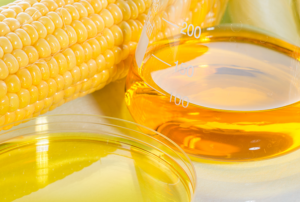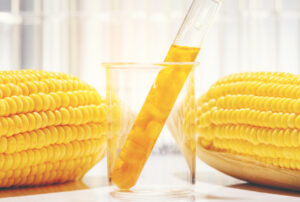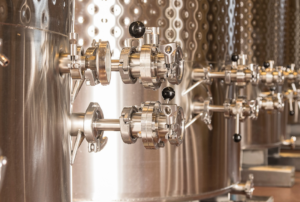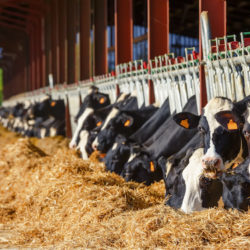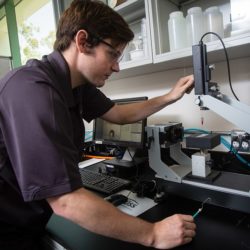
Moving Food Forward: Unleash the Power of Membranes in Precision Fermentation
In a world increasingly concerned with sustainability and the environmental impact of our food choices, precision fermentation is emerging as a game-changer in the quest for alternative proteins. This groundbreaking technology holds the potential to transform our food industry, and at the heart of it lies the power of membranes. In this blog post, we will delve into the world of precision fermentation, its role in creating alternative proteins, and the importance of process optimization. We will also discuss how ultrafiltration and microfiltration membrane separation technology can elevate the quality and yield of fermented proteins. Additionally, we will highlight the importance of strong partnerships in successfully scaling precision fermentation processes.
Understanding Precision Fermentation
Precision fermentation is an advanced biotechnology that involves the use of microorganisms, such as bacteria, yeast or fungi, to produce specific proteins or other valuable compounds. Unlike traditional agriculture, which relies on raising animals or growing crops, precision fermentation offers a more sustainable and controlled method of protein production. It allows us to produce proteins with precision, minimizing resource consumption and environmental impact.
This process involves the genetic engineering of microorganisms to produce desired proteins. By inserting specific genes into these microorganisms, scientists can instruct them to synthesize proteins of interest. The microorganisms are then cultivated in bioreactors, providing them with the ideal conditions for protein production. As they grow, they secrete the target proteins into the culture medium, which can then be harvested and processed for various applications, including food.
Alternative Proteins Through Precision Fermentation
One of the most promising applications of precision fermentation is the creation of alternative proteins. As the global demand for protein-rich foods continues to rise, traditional meat and dairy production methods face challenges related to sustainability, resource depletion and ethical concerns. Precision fermentation offers an environmentally friendly solution by producing proteins without the need for large-scale animal farming.
Precision fermentation can be used to create a wide range of alternative proteins, including plant-based, fungal and microbial proteins. For instance, it’s possible to engineer yeast to produce animal-like proteins, such as casein or collagen, which can be used as key ingredients in plant-based dairy and meat substitutes. This approach reduces the environmental impact of protein production and opens up new possibilities for innovation in the food industry.
The Importance of Process Optimization
Successful precision fermentation depends on meticulous process optimization from the very beginning. This is a complex interplay of biology, engineering and chemistry. Optimizing fermentation processes involves fine-tuning the growth conditions of microorganisms, controlling nutrient supply and maximizing protein production.
Process optimization is not a one-size-fits-all approach. Each protein and microorganism combination requires tailored conditions to achieve the best results. It’s essential to invest time and resources in research and development to fine-tune fermentation processes and ensure consistent protein quality and yield.
Leveraging Membranes for Protein Purity and Yield
When it comes to optimizing precision fermentation processes, one of the crucial tools in the toolkit is membrane separation technology, specifically microfiltration and ultrafiltration. It is ideally suited for the separation and purification steps and can play a vital role in increasing protein purity and yield.
Microfiltration involves using semi-permeable membranes to separate proteins from the cell mass by rejecting suspended solids in the fermentation broth and allowing the protein to pass to be purified in downstream processes. Ultrafiltration is applied in the downstream process to remove impurities and concentrate the proteins, resulting in a product of higher purity.
Achieving maximum benefits from membrane technology requires proper application and optimization. This approach can augment the quality of the final product, increase protein concentrations, improve productivity and reduce waste. Collaborating with the right partner to ensure the appropriate design and optimization of the system is essential for achieving overall success.
The Role of Partnerships
Scaling up and launching a new product can be daunting and present numerous challenges. One of the key aspects of this process is the final separation and purification of the final product. Working with the right partner can help fine-tune and optimize the separation and purification steps, saving producers time, money and frustration.
Success in scaling up goes beyond choosing reliable suppliers; it necessitates building true, long-lasting partnerships based on collaboration, trust and bottom-line results. Solecta believes that the following attributes are important for a productive partnership:
- Application Expertise: Precision fermentation is a multidisciplinary field that requires expertise in biology, engineering and business. Solecta’s deep understanding of membrane technology, process engineering and polymeric membranes enables us to provide professional guidance on selecting the optimal separation method and process optimization.
- Resource Access: Scaling up precision fermentation requires substantial resources, including funding, infrastructure and equipment. Solecta can provide guidance on available resources that can reduce the financial burden on your business.
- Market Knowledge: Building strong partnerships can open doors to new markets and distribution channels. Collaborating with Solecta can help you navigate the complex landscape of food regulations and market demands.
- Risk Mitigation: The journey from the lab to commercial production is fraught with uncertainties. Strong partnerships can help prevent and address issues proactively before challenges arise. Solecta’s focus on continuous process optimization helps avoid unforeseen circumstances and allows you to address minor changes as they occur.
- Holistic Approach: Understanding how all steps work together is vital to ensuring smooth processes. At Solecta, we strive to understand our client’s overall process to provide optimal solutions that achieve desired outcomes.
In conclusion, precision fermentation represents a revolutionary approach to protein production with the potential to reshape the food industry for the better. Solecta focuses on optimizing processes, leveraging membrane technology, and forging strategic partnerships to unleash the full potential of precision fermentation and propel food toward a more sustainable and ethical future. As we continue to explore the possibilities of this transformative technology, collaboration and innovation will be key drivers of success. Together, we can harness the power of membranes and precision fermentation to create a brighter, more sustainable food future for all.
Related Resources in the Knowledge Hub
Let’s Keep in Touch
Follow Solecta on LinkedIn and join our mailing list to keep up with our latest news.
Explore the Possibilities
Our team of application engineers and domain experts understands your industry’s unique challenges. (They’re also eager to solve them.)

